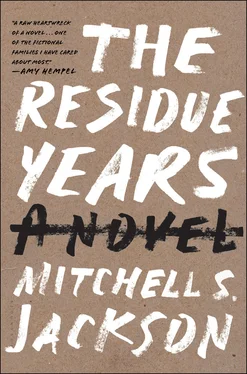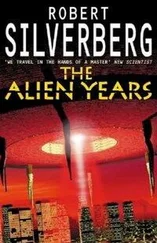I need to find him.
— Grace
Andrew’s truck isn’t out front, so I sneak around back to check if it’s garaged. I’m peeking into the garage when I hear the patio door slide open. It’s his wife.
What? I say.
Why you look? she says. She can make her eyes into swords when she wants. Or lances.
Where is he? I say.
So rude, she says.
Where? I say.
She looks into the alley and asks if I’m alone.
I need to find him, I say.
He downtown, she says. Rally at the square.
I stomp for the gate. She calls after me and I decide to stop. She comes down the steps and whisks across the patio with her arms in a gesture of peace.
This way with us, she says. It is no good.
This could be a ploy. Why here? Why now? This woman who long ago plied at Andrew to send me away. Who all these years has dug a moat between us. The hard heartbreaks don’t soften this fast.
* * *
My brother Pat used to tell me stories about Andrew, how he’d made the local paper for his role in a school board meeting, about him marching in police beating protests, how he’d sit front row at a city forum to rename a street. Times he was present for others when that presence too was at my expense. When it meant missing a recital, or school play, or a track meet. Andrew oft absent, though in this way we’ve been more alike than we have not.
There’s a Measure Eleven protest at the courthouse square. A slew of folks shouting and stomping and waving and pounding cardboard signs tacked to sticks. There are so many of them, all that shows through the mass of feet and bodies are bits of red brick. I stand on the fringes with what seems little chance of finding Andrew inside the crush.
My eyes dart from this to that one and Andrew is nowhere to be found. I wade closer and see a man on the steps dressed in khakis and a windbreaker, a bullhorn in hand. He jumps and barks through the horn. The veins in his neck flex to tight ropes and his face blushes to the red of a fresh scratch. Police with helmets and clubs and shields show up and stand shoulder to blue-uniformed shoulder — stewing, but where don’t they? — around the sides of the square. I skirt around to Broadway to look from higher up. But there’s no sign of Andrew, so I ease down the steps and into the horde. The speaker points to the sky and the crowd roars. They spike signs and pump their fists and chant, and I sift for Andrew, feeling as if each step places me more and more in harm’s way, as if finding his dark face would be the same as seeing Christ. It isn’t long until I’m in the center, suffering bumps and nudges, with my arms stiff and my shoulders pushed tight, me on the verge of a full cardiac stop or else an organ about to burst through my ribs. It’s too much. It isn’t anything left for me to do but brace and wait for the crowd to grant me a safe distance.
The touch on my arm you couldn’t mistake. It’s a father’s touch, a kind touch. Grace, he says. What are you doing? Why are you here?
So this, this, is why these niggers feel super.
— Champ
Security at the shack shakes me down at the front and turns an aphasic tower till I ask where I can find Mister. He nods towards the steps at the end of an unlit hall, steps that announce my weight all the way down. From down here you can see Mister through an archway among an ambit of gamblers, hustlers fatmouthing with fat stacks in their fists and piles of bills underfoot, an august vision when you’ve lost what I lost: thousands , in one whop! I stand by while they bicker over who’s next on the dice, who hit what point, who made what side bet, stall with no clue of what the fuck I’ll say. Mister gets his turn on the dice, and that’s when, trepid as shit, I slug inside. Mister nods. He’s got a knot of bills in his grip, money flapping out his pockets too. One of the old heads asks if I’m shooting and I shake my head no. The old head who asked about me playing ain’t the only one of them I’ve seen before, and I’m wondering which one, if any, knows what happened last night? What happened to me last night is the kind of news that travels at Mach speed, light speed, motherfucking god speed. It’s called the wire. And it’s the same kind of wire that turned these dice games into legends.
You hear of fools losing new car money in a night, losing that much and returning the next day, hear of games going all night and through the morning, shoot-outs that start with bet the dub and end with two men standing and heaps of cash. And if the games are legends, Mister’s (it’s almost impossible to beat the inexhaustible bank) the hero, mythic for winning big, for never getting duped by a scheme nor jerked on a debt.
Mister smooths his tie, brushes dust off his knee, gives Red, who’s holding his sport coat, a clutch of wrinkled hundreds. He blows on the dice and shakes them near his head. Taking all bets, gentlemen, he says. Tonight’s a good night. Tonight could be your night. His first roll shows four and five, and he scoops the dice and rubs them together. Who else wants a shot at the bank? he says, and taunts the reluctant into wary side bets. Mister kisses the dice and shoots. He shoots and shoots and shoots. You could fall out and die waiting for him to hit his point or crap out, and, shit, I almost do. But he does — he hits it and sends Red around to collect the loot.
The hope, a foolish hope, fleets that his mood is such he might forgive what I owe. We (the we being anyone with even a toe in the streets) all know if you owe this man a cent, you pay this man that cent, or else.
Don’t leave, gentlemen. Please, he says. He gives the dice to an old head and signals me and I follow him into a room cordoned by a dingy curtain and stacked with dusty crushed boxes. The room is either twice as hot as anyplace or else the day’s long dread is a flame in my gut.
It’s about last night, I say.
Mister throws up his hand. So I hear, he says.
You heard? I say.
A long shadow flits past the curtain. The dice game kicks into a next round.
He moves closer and rolls his shoulders.
Did I ever tell you how well Red could swim? he says. Did I ever tell you how strong he was, how fast? Back home, we never lived more than a bike ride from the beach. We lived that close and my brother was always there, always in the water. Don’t know why, but this one day I decided to go with him. Not too long after we got to the beach, we started woofing about who could do what, and who was the best and biggest and strongest. The woofing ended with a bet to see who could swim out the farthest. On the face the bet was a no-win for me. Anyone who’d ever seen us near water knew Red was twice the swimmer I was. Red knew he was twice the swimmer I was, but I knew what he didn’t. We both dove in and right off Red was Red, out front going fast and strong, while I lagged stroking slow and steady. I kept the same pace until I passed the buoys, until I couldn’t see my brother swimming beside or ahead of me. I swam till I was out so far that the current was tugging me where it wanted. Got out that far and swam farther, swam as a matter of fact until I thought I might die. That’s when I turned and headed back. It took every ounce of me to make it to shore, Mister says. And collapsed as soon as I touched the sand. The next thing I knew, Red was standing over me shaking his head, calling me crazy, asking me how I did what I did, claiming it must’ve been a trick. He hovered until I caught my breath. He asked again and I told him yes, it was a trick. And the trick was, he swam worried the whole way whether he’d make it back to shore, but making it back was never the bet.
Читать дальше












